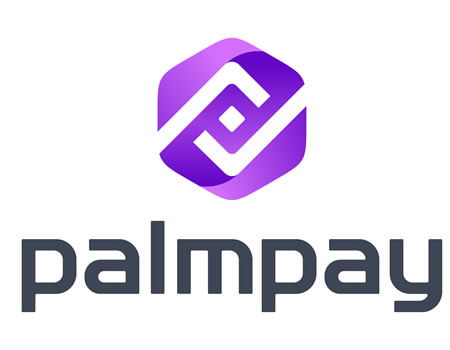PalmPay moves to curtail cyber fraud

Financial inclusion in Nigeria has improved since the country adopted inclusion strategy in 2012.
According to the 2023 Report on Access to Financial Services in Nigeria, financial inclusion continues to expand and has so far been fuelled by marginal growth among the country’s banked population and major gains in non-bank formal adoption.
“Although, approximately 40 million adult Nigerians remain formally excluded, formal financial inclusion was said to have grown from 56 per cent in 2020 to 64 per cent in 2023. In the last four years, fintech companies in Nigeria have played a vital role in closing this gap, bringing financial services to the country’s unbanked and driving economic growth.Their successes, however, have not come without challenges.
Tribune Online
PalmPay moves to curtail cyber fraud
by Nurudeen Alimi February 22, 2024 Reading Time: 3 mins read
A A
PalmPay cyber fraud
Palmpay
Financial inclusion in Nigeria has improved since the country adopted inclusion strategy in 2012.
According to the 2023 Report on Access to Financial Services in Nigeria, financial inclusion continues to expand and has so far been fuelled by marginal growth among the country’s banked population and major gains in non-bank formal adoption.
“Although, approximately 40 million adult Nigerians remain formally excluded, formal financial inclusion was said to have grown from 56 per cent in 2020 to 64 per cent in 2023. In the last four years, fintech companies in Nigeria have played a vital role in closing this gap, bringing financial services to the country’s unbanked and driving economic growth.Their successes, however, have not come without challenges.
Related Posts
CAC registers 2.5 million businesses in two months
Update your BVN, NIN or lose your account, PalmPay tells users
2020 UTME: JAMB uncovers massive cyber fraud in registration centres
“Following the penetration of digital payment platforms in Africa, a fraud epidemic has plagued the fintech ecosystem in Nigeria, with Mobile, Web and POS being the most exploited channels by fraudsters in the country in 2023,” the 2023 NIBSS Annual Fraud Landscape report stated.
According to the 2023 NIBSS Annual Fraud Landscape report, incidents of “fraud loss via Internet Banking increased by 325 between 2022 and 2023,” the report added.
To address the fraud epidemic, the Fintech Association of Nigeria (FintechNGR) plans to unveil a fraud reporting framework sometime this year, while fintech platforms such as PalmPay continue to take the initiative to reevaluate their in-app safety features to protect their users from the activities of fraudsters.
Since launching in Nigeria in 2019 under a Mobile Money Operator (MMO) licence by CBN, PalmPay has grown to over 30 million users as part of its payment ecosystem.
PalmPay has also sought to foster a secure financial ecosystem by integrating safety features into its app so that the millions of users who transact with the app do so in a safe and trusted environment.
In general, PalmPay employs a closed-loop risk management system that involves continuous monitoring, analysis, and response to fraud threats and allows it to detect and prevent security risks in real-time and reduce the potential impact of fraud.
In particular, to reduce incidents of fraud, protect their users from fraudsters, and provide a safe banking environment, PalmPay binds their users’ phones to the app and has an auto-logout and biometrics feature to confirm users’ identity.
Mr Chika Nwosu, Managing Director, PalmPay, said the reason why the fintech platform has witnessed astonishing growth in four years was because, “We prioritise the safety and security of our users.”
He said they’ve been able to achieve this by “marrying security and safety with the customer experience to create a balance.”
Because it understands that curtailing fraud is a two-way street, PalmPay runs a Wallet Safety Workshop to teach users of its app and POS machines various security topics covering payment security and common security issues in daily life, such as password management, fraud detection, phishing and risk identification.
The safety workshop underscores PalmPay’s understanding of user security as an important part of curtailing fraud and encourages its users to ensure that they always secure their wallets using the several built-in safety features in its app.
A recent example was a series of campaigns encouraging its users to link their wallets with their BVN or NIN, following the directive by the Central Bank of Nigeria (CBN) for users of fintech platforms to link their wallets with their BVN or NIN.
To encourage the users to meet the CBN deadline of January 31, 2024, PalmPay introduced an incentive payment system where up to N500 was paid to users who got ahead of the deadline and validated their wallet information.
PalmPay users have several options for protecting
themselves against fraudsters such as the two-factor verification process that makes it difficult for fraudsters to gain access to users’ apps without spooking them. In the first half of 2023, millions of users linked their secure email addresses to their PalmPay app. With this feature, PalmPay users effortlessly receive OTPs for their in-app login.
The PalmPay app has a device management feature that allows users to manage trusted devices and remove untrusted devices. When logging in on an untrusted device, users complete a comprehensive security verification process that involves inputting an OTP and their PIN to ensure security.
“Following the penetration of digital payment platforms in Africa, a fraud epidemic has plagued the fintech ecosystem in Nigeria, with Mobile, Web and POS being the most exploited channels by fraudsters in the country in 2023,” the 2023 NIBSS Annual Fraud Landscape report stated.
According to the 2023 NIBSS Annual Fraud Landscape report, incidents of “fraud loss via Internet Banking increased by 325 between 2022 and 2023,” the report added.
To address the fraud epidemic, the Fintech Association of Nigeria (FintechNGR) plans to unveil a fraud reporting framework sometime this year, while fintech platforms such as PalmPay continue to take the initiative to reevaluate their in-app safety features to protect their users from the activities of fraudsters.
Since launching in Nigeria in 2019 under a Mobile Money Operator (MMO) licence by CBN, PalmPay has grown to over 30 million users as part of its payment ecosystem.
PalmPay has also sought to foster a secure financial ecosystem by integrating safety features into its app so that the millions of users who transact with the app do so in a safe and trusted environment.
In general, PalmPay employs a closed-loop risk management system that involves continuous monitoring, analysis, and response to fraud threats and allows it to detect and prevent security risks in real-time and reduce the potential impact of fraud.
In particular, to reduce incidents of fraud, protect their users from fraudsters, and provide a safe banking environment, PalmPay binds their users’ phones to the app and has an auto-logout and biometrics feature to confirm users’ identity.
Mr Chika Nwosu, Managing Director, PalmPay, said the reason why the fintech platform has witnessed astonishing growth in four years was because, “We prioritise the safety and security of our users.”
He said they’ve been able to achieve this by “marrying security and safety with the customer experience to create a balance.”
Because it understands that curtailing fraud is a two-way street, PalmPay runs a Wallet Safety Workshop to teach users of its app and POS machines various security topics covering payment security and common security issues in daily life, such as password management, fraud detection, phishing and risk identification.
The safety workshop underscores PalmPay’s understanding of user security as an important part of curtailing fraud and encourages its users to ensure that they always secure their wallets using the several built-in safety features in its app.
A recent example was a series of campaigns encouraging its users to link their wallets with their BVN or NIN, following the directive by the Central Bank of Nigeria (CBN) for users of fintech platforms to link their wallets with their BVN or NIN.
To encourage the users to meet the CBN deadline of January 31, 2024, PalmPay introduced an incentive payment system where up to N500 was paid to users who got ahead of the deadline and validated their wallet information.
PalmPay users have several options for protecting
themselves against fraudsters such as the two-factor verification process that makes it difficult for fraudsters to gain access to users’ apps without spooking them. In the first half of 2023, millions of users linked their secure email addresses to their PalmPay app. With this feature, PalmPay users effortlessly receive OTPs for their in-app login.
The PalmPay app has a device management feature that allows users to manage trusted devices and remove untrusted devices. When logging in on an untrusted device, users complete a comprehensive security verification process that involves inputting an OTP and their PIN to ensure security.













Post Comment